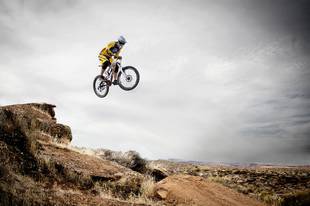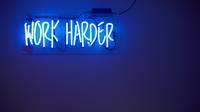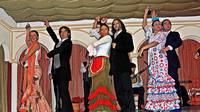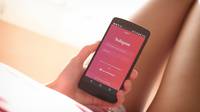
One way to get yourself into a state that supports your achieving any outcome is to act "as if" you were already there. Acting "as if" is most effective when you put your physiology in the state you'd be in if you were already effective.
Physiology is the most powerful tool we have for instantly changing states, for instantly producing dynamic results. There's an old saying: "If you would be powerful, pretend to be powerful." Truer words were never spoken. Expect results that will change your lives. To do that, you have to be in the most resourceful physiology possible, for there's no powerful action without powerful physiology.
If you adopt a vital, dynamic, excited physiology, you automatically adopt the same kind of state. The biggest leverage we have in any situation is physiology - because it works so fast, and it works without fail. Physiology and internal representations are totally linked. If you change one, you instantly change the other. I like to say, "There is no mind, there is only body," and "there is no body, there is only mind." If you change your physiology - that is, your posture, your breathing patterns, your muscle tension, your tonality - you instantly change your internal representations and your state.
Can you ever remember a time when you felt totally rundown? How did you perceive the world? When you feel physically tired or your muscles are weak or you have pain somewhere, you perceive the world quite differently from when you feel rested, alive, and vital. Physiological manipulation is a powerful tool for controlling your own brain. So it's extremely important that we realize how strongly it affects us, that it's not some extraneous variable, but an absolutely crucial part of a cybernatic loop that's always in action.
When your physiology runs down, the positive energy of your state runs down. When your physiology brightens and intensifies, your state does the same thing. So physiology is the lever to emotional change. In fact, you can't have an emotion without a corresponding change in physiology. And you can't have a change in physiology without a corresponding change in state. There are two ways to change state, by changing internal representations or by changing physiology. So if you want to change your state in an instant - what do you do? Zap! You change your physiology - that is, your breathing, your posture, your facial expression, the quality of your movement, and so on.
No one consciously says, "I'd rather be depressed than happy." But what do depressed people do? We think of depression as a mental state, but it has a very clear, identifiable physiology. It's not hard to visualize a person who is depressed. Depressed people often walk around with their eyes down. (They're accessing in a kinesthetic mode and/or talking to themselves about all the things that make them feel depressed.) They drop their shoulders. They take weak, shallow breaths. They do all the things that put their body in a depressed physiology. Are they deciding to be depressed? They sure are. Depression is a result, and it requires very specific body images to create it.
The exciting thing is that you can just as easily create the result called ecstasy by changing your physiology in certain specific ways. After all, what are emotions? They're a complex association, a complex configuration of physiological states. Without changing any of his internal representations, I can change the state of any depressed person in seconds. You don't have to look and see what pictures a depressed person is making in his mind. Just change his physiology, and zap, you change his state.
If you stand up straight, if you throw your shoulders back, if you breathe deeply from your chest, if you look upward - if you put yourself in a resourceful physiology - you can't be depressed. Try it yourself. Stand up tall, throw your shouldres back, breathe deeply, look up, move your body. See if you can feel depressed in that posture. You'll find that it's almost impossible. Instead, your brain is getting a message from your physiology to be alert and vital and resourceful. And that's what is becomes.


















